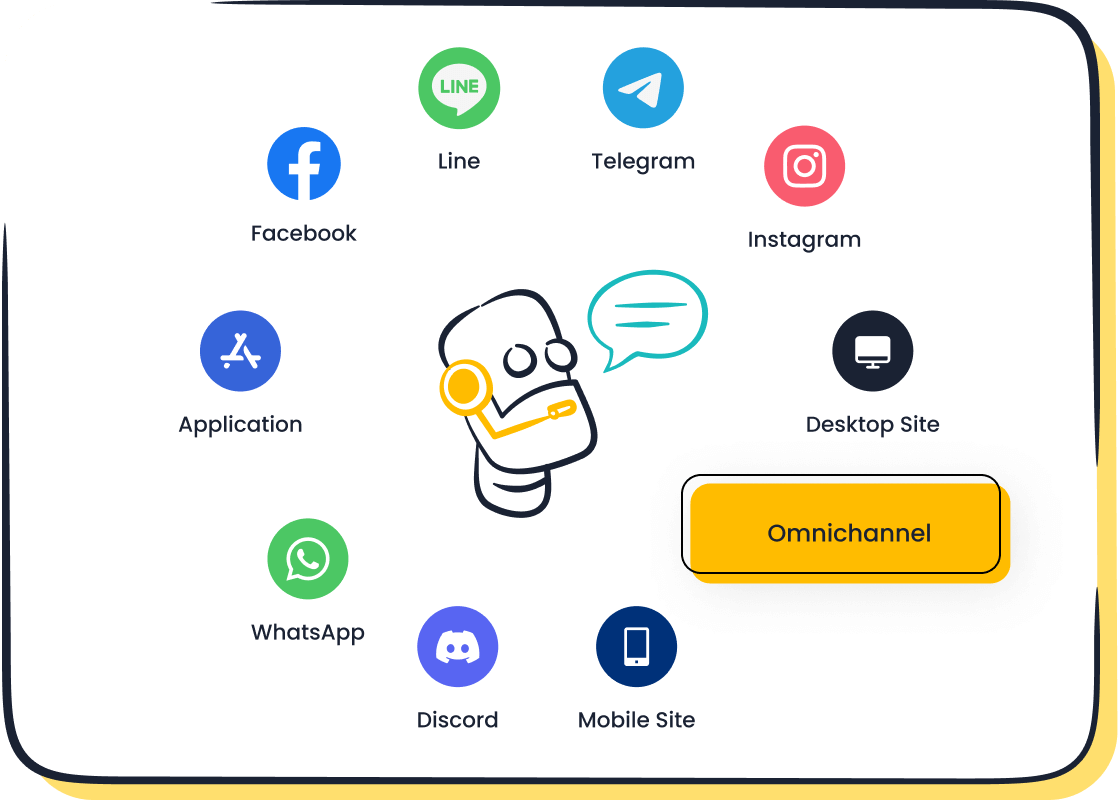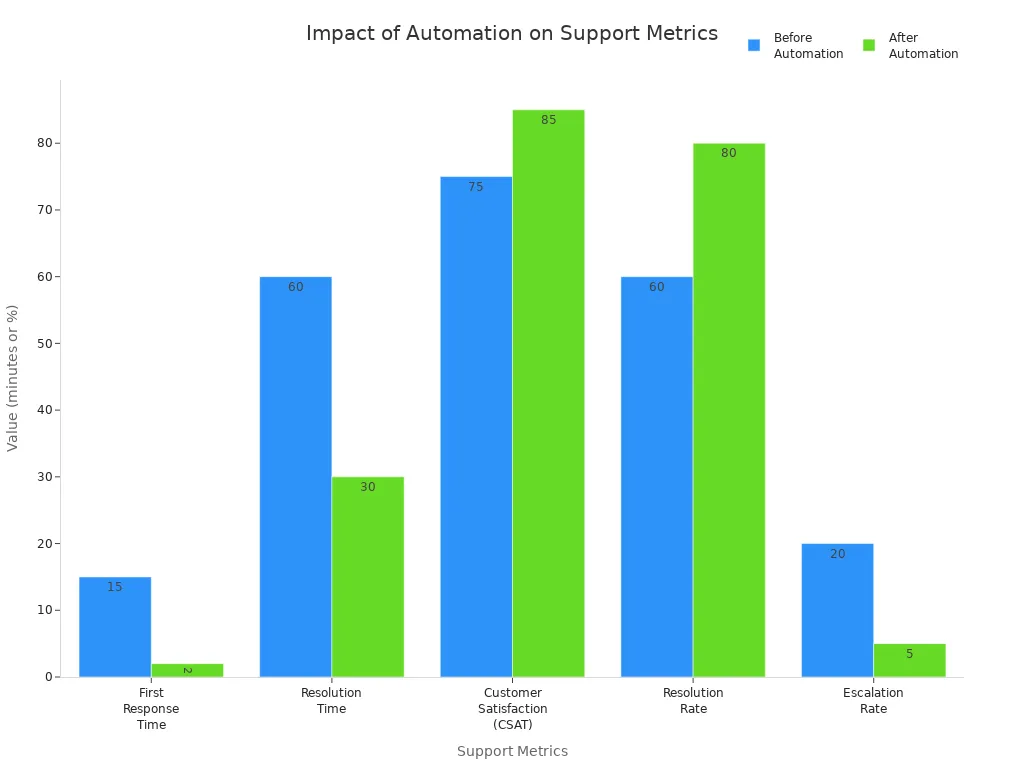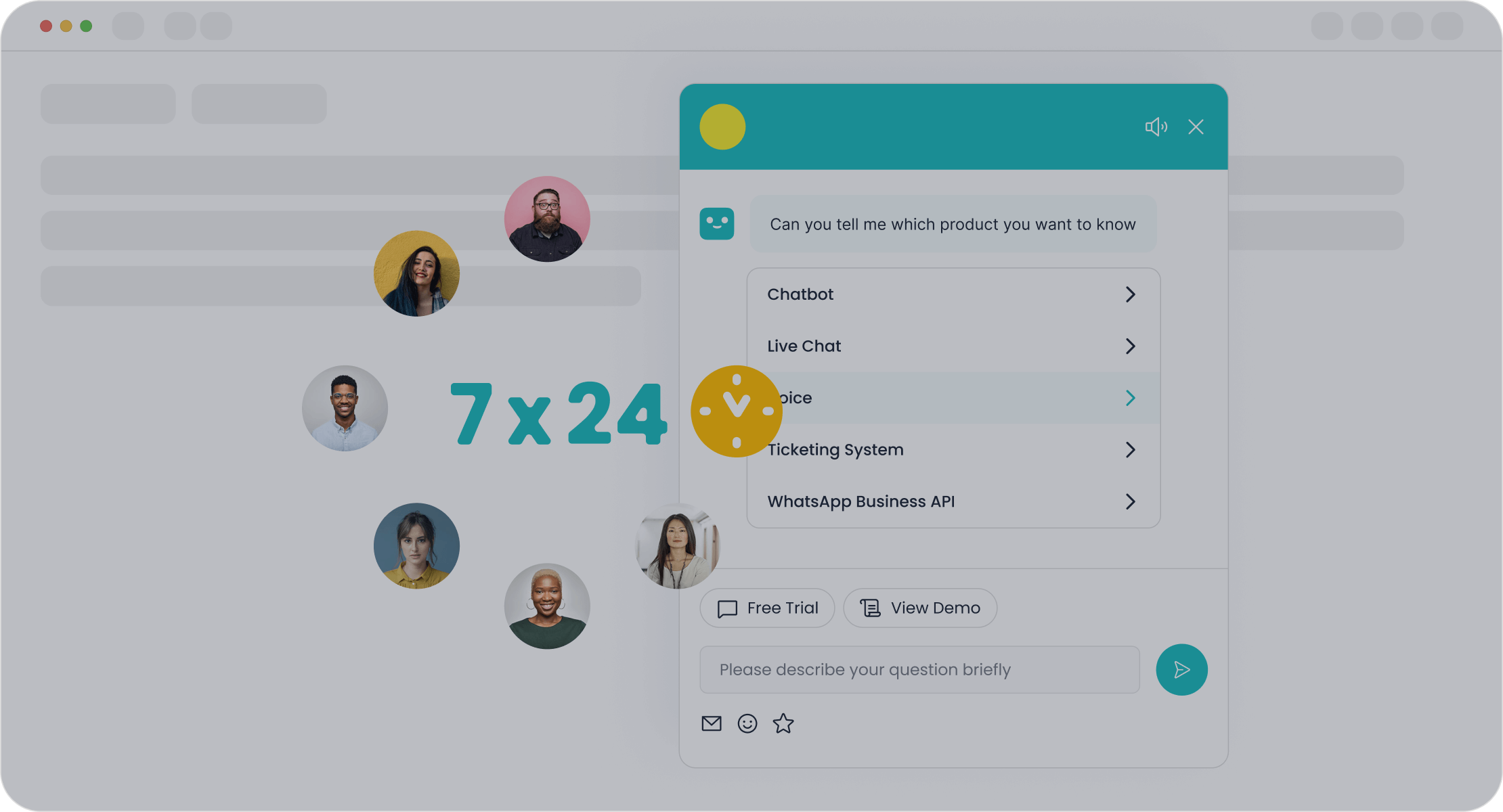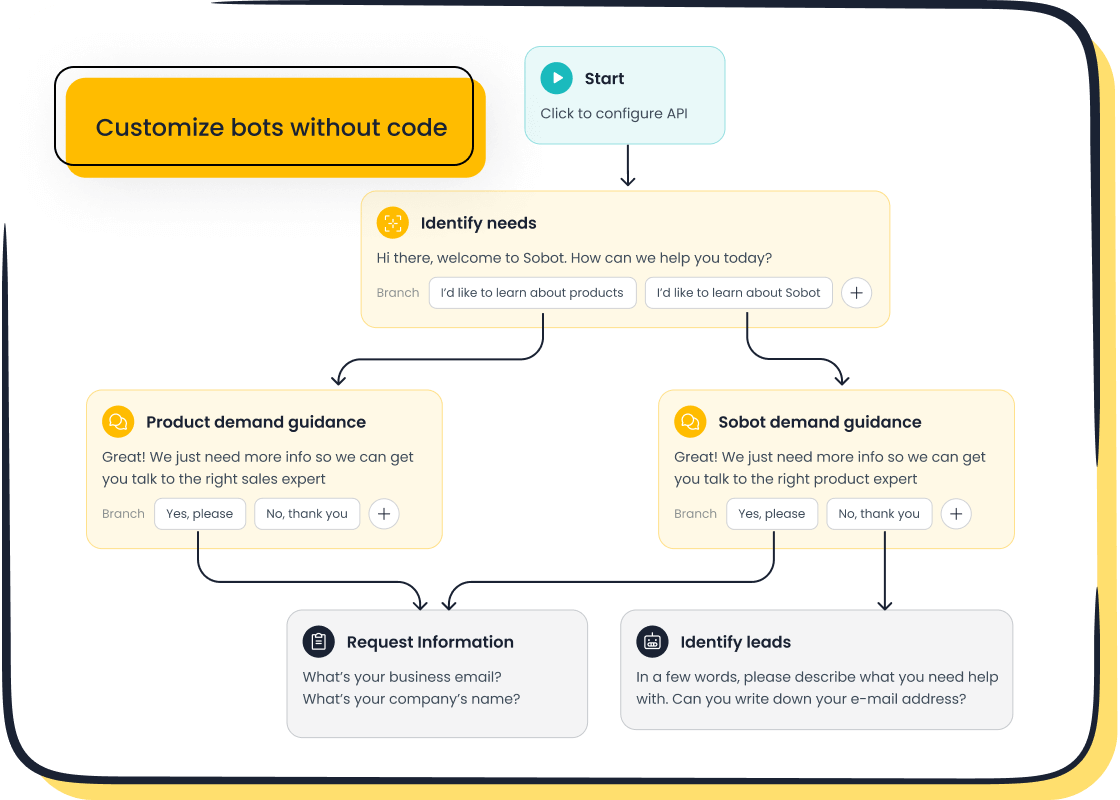Ecommerce Automation Services and Tools Buyers Should Know

Ecommerce automation services have become vital for online business success in 2025. Companies now seek to streamline operations and focus on enhancing customer experience to drive business growth. AI and omnichannel support play a key role in this shift, with studies showing that AI-powered strategies can increase customer retention by up to 85% and boost sales by 40%. Leading brands like Sobot and Sobot AI enable ecommerce businesses to deliver seamless, personalized service across channels, making enhancing customer experience a standard for the industry.
Ecommerce Automation Overview

What Is Ecommerce Automation?
Ecommerce automation uses digital tools to manage repetitive tasks in an online business. These tools act as digital assistants, handling marketing campaigns, customer queries, pricing updates, and store operations. Ecommerce automation software works behind the scenes to boost productivity and help ecommerce platforms succeed. By automating these tasks, businesses can focus on strategy and growth. Sobot, for example, provides ecommerce automation services that streamline customer engagement and unify customer touchpoints across channels. This approach supports customization at every stage of the customer journey, making it easier for ecommerce businesses to deliver a seamless experience.
2025 Trends
Market analysts predict several trends will shape ecommerce automation software in 2025:
- Artificial Intelligence will drive personalization, customer support, and operational efficiency.
- Composable commerce will let retailers build flexible, modular ecommerce platforms for better customization.
- Social commerce will grow, allowing users to shop directly on social media platforms and increasing engagement.
- Payment and fulfillment innovations, like Buy Now, Pay Later, will become more common.
- Supply chain optimization will use robotics and automation to improve delivery speed and sustainability.
- Subscription commerce will evolve with AI-driven customization and adaptive models.
- AI-powered customer service, including advanced chatbots like Sobot’s, will enhance user experience and operational efficiency.
- Data security and consumer trust will remain top priorities as ecommerce platforms use more AI.
These trends highlight the need for cross-channel automation and customization to meet changing customer expectations.
Why It Matters
Ecommerce automation software improves operational efficiency and customer experience. Automation streamlines complex workflows, reduces errors, and integrates data across ecommerce platforms. Businesses can personalize engagement at every touchpoint, from onboarding to order fulfillment. Automated live chat and chatbots, such as those offered by Sobot, provide instant responses and guide customers through their journeys. Real-time inventory tracking and automated returns management prevent stockouts and build trust. With cross-channel automation, ecommerce businesses can connect with customers across multiple touchpoints, ensuring consistent engagement and customization. This approach helps online businesses retain customers, attract new ones, and deliver better cross-channel journeys.
Ecommerce Automation Services
Key Benefits
Ecommerce automation services deliver many advantages for online retailers. Businesses use these solutions to improve efficiency and drive growth. Some of the main benefits include:
- Time and cost savings by automating repetitive tasks across customer touchpoints.
- Increased productivity as staff focus on higher-value work instead of manual processes.
- Better employee satisfaction because automation removes tedious jobs.
- Enhanced customer service with fewer errors and faster task completion at every stage of the customer journey.
- Stronger personalization capabilities, allowing businesses to tailor messages and offers for each customer.
- More accurate data and faster reporting, supporting better decisions.
- Easier scaling for ecommerce businesses as automation boosts productivity.
- Improved supply chain visibility and stronger vendor relationships.
- Streamlined order processing, inventory management, and fulfillment.
- Support for marketing personalization and customer loyalty programs.
These benefits help ecommerce businesses deliver consistent engagement and customization across all customer touchpoints.
Common Challenges
While ecommerce automation services offer many rewards, businesses often face obstacles during implementation:
- Employees may resist change due to concerns about job security or transparency.
- Some companies lack clear goals, which can lead to unfocused automation efforts.
- Integrating new tools with legacy systems can disrupt operations.
- Ongoing maintenance, training, and upgrades may bring hidden costs.
- Data accuracy and consistency issues can arise.
- Security concerns remain a top priority.
- Many organizations lack technical expertise.
- Some automation tools lack flexibility and do not support needed customization.
Addressing these challenges ensures that ecommerce automation services deliver the expected improvements in customer experience and engagement.
Sobot’s Role
Sobot stands out in ecommerce automation services by providing AI-powered chatbots and omnichannel solutions. For example, OPPO used Sobot’s chatbots to increase customer engagement by 20% and improve satisfaction. Sobot’s chatbots use advanced personalization capabilities and emotional intelligence to detect customer frustration and trigger proactive support. This approach helps ecommerce businesses reduce churn and boost loyalty. Sobot’s solutions unify customer touchpoints, support real-time engagement, and enable deep customization at every step of the customer journey. These features help businesses achieve better customer experience personalization and drive successful ecommerce journeys.
Tool Categories
Ecommerce businesses rely on a range of automation tools to streamline operations, improve customer experience, and drive growth. Each tool category addresses specific business needs and supports cross-channel automation and customization. The table below summarizes the main categories and their key benefits:
| Category | Business Needs Addressed | Key Functionalities and Benefits |
|---|---|---|
| Marketing Automation Platforms | Automate and personalize marketing across channels, increase engagement, and drive sales | Email and social media automation, lead scoring, customer journey mapping, CRM integration, analytics, AI personalization |
| Customer Support Automation | Provide fast, consistent support and improve satisfaction | AI chatbots, omnichannel support, automated responses, ticketing, feedback surveys, 24/7 availability |
| Order & Inventory Management | Optimize stock levels, prevent shortages, and streamline fulfillment | Real-time tracking, multi-channel selling, batch planning, integration with ecommerce platforms |
| Review & Feedback Tools | Build trust, boost conversions, and gather actionable insights | Automated review requests, quick responses, analytics integration, transparent engagement |
Marketing Automation Platforms
Marketing automation platforms help ecommerce brands run automated campaigns, personalize messaging, and manage customer journeys across multiple channels. These platforms support cross-channel automation, enabling businesses to reach customers through email, social media, and mobile. Leading platforms like HubSpot, Marketo, and Salesforce offer features such as lead generation, journey mapping, and AI-driven customization. According to MarketsandMarkets, the marketing automation market is projected to reach $6.4 billion by 2024, with 80% of marketers reporting increased leads after adoption (source). Companies using these platforms are three times more likely to see revenue growth. No-code automation and no-code tools make it easy for teams to launch cross-channel campaigns without technical skills.
Customer Support Automation
Customer support automation tools transform how ecommerce businesses handle inquiries and support requests. Sobot Chatbot stands out as a leader in this space, offering AI-powered, multilingual, and omnichannel support. Sobot’s platform enables businesses to deliver personalized, 24/7 assistance across all channels, supporting deep customization and cross-channel engagement. After implementing Sobot Chatbot, companies have seen first response times drop from 15 minutes to just 2 minutes, with customer satisfaction rates rising to 85%.

Sobot’s no-code interface allows easy setup and workflow customization, making advanced automation accessible to all ecommerce teams.
Order & Inventory Management
Order and inventory management automation tools help ecommerce businesses maintain optimal stock levels and streamline fulfillment. Platforms like Katana provide real-time inventory tracking, multi-channel selling synchronization, and automated stock adjustments. These tools integrate with popular ecommerce platforms, allowing businesses to monitor sales, plan production, and avoid costly stockouts. Cloud-based solutions support cross-channel automation and customization, ensuring accurate order processing and efficient warehouse management.
Review & Feedback Tools
Review and feedback automation tools play a crucial role in building customer trust and increasing sales. Automated systems send review requests, collect feedback, and enable quick, personalized responses. Studies show that reviews can boost conversion rates by up to 270% and increase sales by 18%. Timely engagement with both positive and negative feedback builds transparency and credibility. Automation increases the volume and freshness of reviews, providing valuable insights for ongoing customization and cross-channel marketing strategies.
Best Ecommerce Automation Tools
Top Marketing Automation Platforms
Marketing automation platforms help ecommerce businesses automate campaigns, personalize messaging, and manage customer journeys across multiple touchpoints. These platforms support cross-channel marketing, making it easier to reach customers through email, SMS, and social media. The table below compares some of the best ecommerce automation tools for marketing in 2025:
| Platform | Key Features & Strengths | Target Users | Expert/User Ratings Summary |
|---|---|---|---|
| Insider | Advanced personalization, automation, strong support, high ROI | Enterprise, cross-channel | Highly rated for versatility and customer support |
| Marketo Engage | AI-driven lead nurturing, audience segmentation, B2B & B2C automation | Enterprise, B2B & B2C | Recognized for powerful automation and personalization |
| Adobe Campaign | Cross-channel campaign management, content orchestration | Enterprise, cross-channel | Praised for campaign orchestration |
| HubSpot Marketing Hub | Visual workflow builder, email/live chat/on-site automation, scalable plans | SMB to Enterprise | Popular for ease of use and automation features |
| Braze | Multi-channel engagement (email, SMS, WhatsApp, push), Canvas Flow automation | Mid to large businesses | Noted for campaign automation and personalization |
| Salesforce Marketing Cloud | Customer data platform, loyalty management, cross-channel orchestration | Enterprise | Industry leader with comprehensive automation tools |
| Omnisend | Omnichannel marketing, pre-made templates, product recommendations | SMBs, ecommerce | Easy builder, multi-channel support, good integrations |
| Mailchimp | Email marketing, automation, entry-level features | Small businesses, individuals | Popular for essential automation features |
Marketing automation platforms streamline repetitive tasks, nurture leads, and provide real-time insights. Ecommerce brands use these platforms to automate abandoned cart reminders, order follow-ups, and personalized recommendations, which increases efficiency and profitability.
Leading Customer Support Tools
Customer support automation tools play a key role in ecommerce by providing fast, consistent service across all touchpoints. These platforms use AI to automate responses, route tickets, and support agents. The table below highlights some leading tools and their unique selling points:
| Tool Name | Unique Selling Points |
|---|

| Sobot Chatbot | Omnichannel AI, scenario-based automation, multi-faceted AI for agents/admins, generative AI, secure AI | | DevRev | AI-driven automation, ticket routing, multi-channel support, SLA tracking | | Salesforce Service Cloud | Unified Customer 360 suite, personalized management, data consolidation | | Zoho Desk | Workflow automation, easy ticket assignment, multi-channel communication | | Live Agent | User-friendly ticketing, Google Maps integration, team transfer features |
Sobot Chatbot stands out with its Five-AI system, supporting all customer touchpoints and providing seamless cross-channel engagement. Ecommerce businesses benefit from faster response times and improved customer satisfaction.
Sobot Chatbot Features
Sobot Chatbot offers advanced features that set it apart from other ecommerce automation software:
- Omnichannel AI: Supports chat, email, voice, and social media, ensuring smooth customer experiences across all channels.
- Scenario-based AI: Designed for ecommerce, covering the entire purchase journey from pre-sales to post-sales support.
- Multi-faceted AI: Includes AI Agent for customers, AI Copilot for agents, and AI Insight for administrators.
- Generative AI: Uses advanced language models like OpenAI and Anthropic Claude for accurate, professional responses.
- Secure AI: Meets global data privacy standards and uses regional data centers for compliance.
Sobot’s AI Agent enables multi-channel interactions, including voice and email, and leverages multiple language models for higher resolution rates. The platform also features intelligent voicebots that handle calls with human-like intelligence. Sobot’s mature product and rich knowledge graph make it a top choice for ecommerce automation software.
User feedback highlights Sobot’s ability to automate routine tasks, reduce response times, and personalize interactions. Ecommerce brands report significant improvements in ticket deflection, customer satisfaction, and sales conversion rates after deploying Sobot Chatbot.
- HelloSugar automated 66% of queries, saving $14,000 monthly.
- Underoutfit saw a 315% increase in conversion rates by reducing cart abandonment.
- Multilingual support builds trust with international customers.
- Businesses using Sobot report up to 90% faster response times and 30% lower service costs.
Other Notable Tools
Many other ecommerce automation tools help businesses streamline operations and improve engagement across touchpoints. The table below lists some frequently recommended options:
| Tool Name | Core Functionality | Pricing Overview |
|---|---|---|
| Keap | CRM and automation for small businesses | Variable pricing |
| Hunch | Contextual ad campaigns, AI-driven media buying | Pricing on request |
| Omnisend | Multi-channel marketing automation | Free to $59/month |
| Drip | Customer segmentation and automation | Starting at $39/month |
| Shopify Flow | Workflow automation for Shopify stores | Included with Shopify plans |
| Klaviyo | Marketing automation for ecommerce | Not specified |
| ShipStation | Shipping and order fulfillment automation | Free to custom plans |
| Zapier | Workflow automation connecting multiple apps | Free plan with paid options |
| Nosto | Personalized commerce experience | Pricing on request |
These tools address different needs, from marketing automation to shipping and workflow management. Ecommerce businesses can choose the best ecommerce automation tools based on their size, industry, and specific requirements.
Tip: When selecting ecommerce automation software, consider integration options, scalability, and how well the platform supports cross-channel engagement and personalization capabilities.
Ecommerce Automation Software Comparison
Feature Table
Ecommerce businesses often compare automation software based on features, pricing, and focus. The table below highlights leading solutions, including Sobot, to help buyers make informed decisions:
| Software | Key Features | Pricing Highlights |
|---|---|---|
| Sobot | Omnichannel AI chatbot, cross-channel support, scenario-based automation, no-code setup | Custom pricing; tailored for business needs |
| HubSpot | Marketing, sales, CRM automation; robust workflows; 900+ integrations | Starts at $800/month (Pro); $3,600/month (Enterprise) |
| Mailchimp | AI-powered email, segmentation, SMS, abandoned cart automation | Free plan; paid from $13/month to $350/month |
| Shopify Flow | Custom workflows for Shopify merchants; order management, fraud detection | Included with Shopify plans |
| Yotpo | Review automation, loyalty programs, SMS review requests | Pricing varies |
| Webgility | Accounting automation, multichannel sync, QuickBooks integration | Starting at $49/month |
Sobot stands out for its cross-channel automation and seamless integration with ecommerce platforms, supporting both customer support and marketing needs.
Integrations & Scalability
Integration capabilities and scalability play a crucial role in selecting ecommerce automation software. Sobot offers seamless integration with major ecommerce platforms like Shopify and Amazon, enabling businesses to unify customer data and automate workflows across channels. HubSpot connects with over 900 apps, while Mailchimp and Shopify Flow provide easy integration for marketing and store management. Platforms such as Zoho and LiveChat support hundreds of third-party integrations, making cross-channel automation accessible for growing businesses. Most solutions offer tiered pricing, allowing ecommerce brands to scale as their needs evolve.
Tip: Choose software that supports seamless integration and cross-channel workflows to future-proof your ecommerce operations.
User Feedback
User feedback reveals common themes across ecommerce automation software:
- Many users value ease of use and seamless integration with existing systems.
- Businesses appreciate automation features like trigger-based emails, cart recovery, and cross-channel messaging.
- Scalability and compliance with data protection laws receive positive remarks.
- Some users mention setup challenges and the need for better customization.
- Cost savings and improved efficiency remain top benefits, especially for order management and customer support.
Sobot receives praise for its intuitive interface, cross-channel support, and ability to automate customer interactions, helping ecommerce businesses achieve higher satisfaction and lower service costs.
Choosing Ecommerce Platforms & Tools
Integration Factors
Selecting the right ecommerce platforms and automation tools requires careful attention to integration capabilities. Businesses should follow a structured approach to ensure seamless integration with existing systems:
- Cleanse and validate data to prevent errors during integration.
- Document all current systems and workflows for reference.
- Align stakeholders from sales, marketing, operations, and IT on integration goals.
- Roll out automation in phases, starting with critical systems.
- Test thoroughly, including unit and user acceptance tests.
- Manage data migration to preserve integrity and minimize downtime.
- Train teams and provide ongoing support for smooth adoption.
- Monitor integration performance using KPIs like order fulfillment speed.
- Prioritize flexibility and scalability for future growth.
- Use APIs for robust connectivity between ecommerce platforms and automation tools.
- Implement security measures such as authentication and error handling.
- Continuously optimize with AI-powered orchestration and composable commerce architectures.
No-code automation tools like Sobot enable businesses to connect workflows without technical expertise, making integration accessible for all team members.
Cost & ROI
Cost and return on investment (ROI) play a major role when evaluating ecommerce platforms and automation solutions. The table below outlines typical costs and benefits:
| Feature / Platform Type | Typical Cost Range (USD) | ROI / Benefits Summary |
|---|---|---|
| Personalized Product Recommendations | $30,000 – $80,000 | Increases average order value by 20–30% |
| Chatbots & Virtual Assistants | $20,000 – $60,000 | Cuts support costs, improves response time |
| Inventory & Supply Chain Optimization | $50,000 – $150,000 | Reduces holding costs, speeds up fulfillment |
| Dynamic Pricing Engines | $40,000 – $100,000 | Boosts profit margins |
| Customer Segmentation & Predictive Targeting | $25,000 – $70,000 | Improves ad spend returns, strengthens retention |
| Complete Multi-Feature Platform | $100,000 – $500,000+ | Maximizes efficiency and personalization |
Businesses can track conversion rates, order value, and operational efficiency to measure ROI. Phased implementation and pre-trained AI models can reduce costs by up to 40%. Sobot’s no-code solutions help companies realize value quickly by automating repetitive tasks and supporting multi-channel selling.
Support & Security
Support and security remain top priorities for ecommerce platforms. Leading automation tools address these concerns by:
- Using data encryption to protect customer and transaction information.
- Controlling access rights to prevent unauthorized exposure.
- Maintaining audit trails to track changes and detect unusual activity.
- Ensuring compliance with regulations such as GDPR and CCPA.
- Integrating fraud detection to flag suspicious behavior in real time.
- Providing alerts for anomalies, allowing human teams to intervene quickly.
- Supporting seamless integration across systems to maintain data accuracy.
Sobot’s platform follows industry best practices, offering robust security protocols and continuous monitoring. Automation elevates human roles, allowing teams to focus on complex tasks while technology handles routine support. This approach ensures that ecommerce businesses can scale confidently and securely.
Sobot in Action: Michael Kors Case

Challenges Faced
Michael Kors, a global leader in luxury fashion, encountered several obstacles as it expanded its ecommerce operations. The brand needed to maintain high-quality customer service while managing growing volumes of inquiries across multiple channels. Key challenges included:
- High operational costs for maintaining 24/7 customer service, including staffing and technology expenses.
- The need to continuously optimize personalized customer experiences to meet rising expectations.
- Complexity in managing communications across email, social media, chat, and phone, which led to inconsistent response times.
- Difficulty delivering personalized service at scale, resulting in less customer loyalty.
- Challenges in managing and using large volumes of customer feedback and data for service improvements.
- Integrating new technology solutions while keeping interfaces user-friendly and operations smooth.
These issues are common among ecommerce brands aiming to deliver seamless, personalized service in a competitive market.
Sobot Solution
Sobot provided Michael Kors with a comprehensive automation solution tailored for ecommerce. The platform introduced several features that addressed the brand’s needs:
| Solution Provided by Sobot | Description | Impact on Michael Kors |
|---|---|---|
| AI-driven Chatbots | Automated responses to frequent questions, such as order tracking and returns | Reduced response times by 83% |
| 24/7 Customer Support | Continuous service across all time zones and peak periods | Increased customer satisfaction to 95% CSAT |
| WhatsApp Business API Integration | Verified business account for bulk messaging and proactive notifications | Improved marketing reach and engagement |
| Live Chat Integration | Seamless handoff from chatbot to human agents for complex queries | Enhanced personalized service |
| Data Monitoring and Storage | Centralized platform for customer communication and data | Improved future service and marketing efforts |
| Customized Chat Interface | Branded chat box with logo, colors, and welcome messages | Strengthened brand identity |
Sobot’s solution unified all customer touchpoints, making it easier for Michael Kors to deliver consistent, high-quality service.
Results Achieved
The implementation of Sobot’s ecommerce automation services produced measurable results for Michael Kors:
- Response times dropped by 83%, allowing customers to receive help almost instantly.
- Customer satisfaction reached 95%, reflecting the improved quality and speed of support.
- Conversion rates increased by 20%, driven by proactive engagement and personalized service.
- The brand preserved valuable customer data, supporting future marketing and service improvements.
- Michael Kors strengthened its brand identity with a customized chat interface and verified messaging.
Michael Kors demonstrated how advanced automation can transform ecommerce customer service, boost loyalty, and drive sales growth.
Selecting the right ecommerce automation tools shapes customer experience and drives business growth. Businesses should:
- Identify which ecommerce tasks need automation, such as marketing or customer support.
- Compare tools for features, cost, integration, and scalability.
- Balance automation with human support to keep customer experience strong.
- Train staff and track results to improve efficiency.
Next steps: Explore Sobot’s free trial, review integration options, and assess how Sobot’s solutions can scale with your ecommerce needs.
FAQ
What is ecommerce automation and why is it important in 2025?
Ecommerce automation uses software to handle repetitive tasks in online stores. In 2025, businesses use automation to save time, reduce errors, and improve customer experience. Sobot’s solutions help brands boost efficiency and deliver seamless service across channels.
How does Sobot’s chatbot improve ecommerce automation?
Sobot’s AI chatbot automates customer support 24/7. It answers common questions, handles multiple languages, and integrates with platforms like WhatsApp. Businesses using Sobot report up to 70% higher productivity and 50% lower support costs. Learn more at Sobot Chatbot.
What are the main benefits of ecommerce automation tools?
Ecommerce automation tools increase sales, improve customer satisfaction, and reduce manual work. For example, automated marketing campaigns can raise conversion rates by 20%. Sobot’s platform unifies customer data, making it easier to personalize service and track results.
Can ecommerce automation software integrate with existing platforms?
Most ecommerce automation software, including Sobot, integrates with popular platforms like Shopify and Amazon. This integration allows businesses to automate workflows, manage orders, and provide consistent customer support without switching systems.
How can businesses measure the ROI of ecommerce automation?
Businesses track metrics like response time, conversion rates, and customer satisfaction. For example, Michael Kors used Sobot’s ecommerce automation services and saw an 83% drop in response time and a 20% increase in conversions. These results show clear ROI from automation.
Tip: Regularly review analytics to maximize the value of ecommerce automation tools.
See Also
Ways Live Chat Solutions Increase Ecommerce Revenue Fast
Best Live Chat Platforms For Ecommerce Businesses 2024
Comparing The Leading Live Chat Tools For Shopify Users
Explore Twelve Live Chat Applications To Boost Shopify Sales
